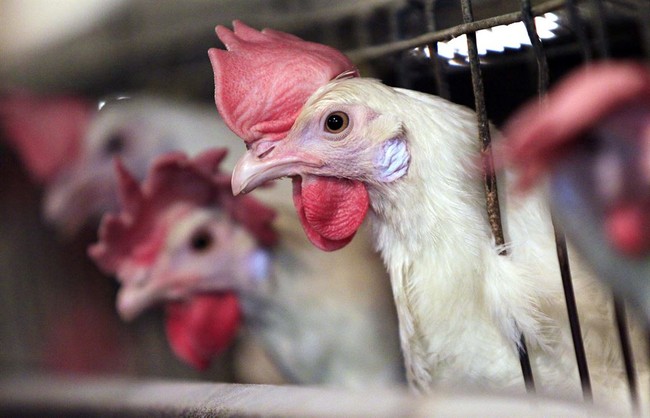
As the nation is focused on the upcoming presidential election and the constant stream of bombshells dropping in the media related to the race, authoritarian forces in the west are hard at work concocting new and innovative ways to expand the government’s reach into our lives.
This is especially true of the United Kingdom, which will require its residents to register their chickens with the state ostensibly to curb the spread of the bird flu. But, as with most government initiatives, this measure is likely about more than what its proponents suggest it will be.
Starting on October 1, 2024, all bird keepers in England and Wales must register their birds on the GB Poultry Register under a new mandate, which applies to all bird keepers, regardless of flock size, and introduces stiff penalties for non-compliance. This includes fines of up to £5,000 or six months in prison.
The National Farmers’ Union (NFU) has been actively involved in advocating for these measures since 2017. “These changes should help the government communicate important information to all poultry keepers in a more timely manner, which in turn will help protect the health of the national flock,” said NFU Poultry Board Chair James Mottershead.
The organization previously argued for a lower registration threshold, seeking to apply it only to those who own more than 50 birds. Those who own birds will be required to provide their contact information, the location where birds are housed, and other information pertaining to the birds themselves.
On the 1st of October all chickens in Britain must be registered with the state by law.
It will be a criminal offence to keep unregistered chickens.
Soviet Britain.
— PeterSweden (@PeterSweden7) September 29, 2024
The UK’s government insists that the new regulations will improve the nation’s resistance to Avian Influenza. “These new rules will enable us to have a full picture of the number and location of birds kept across Great Britain, making it easier to track and manage the spread of avian disease,” said the country’s Chief Veterinary Officer in a statement to The Telegraph.
The measure has not been without opposition. Jane Howorth, Chief Executive of the British Hen Welfare Trust, argued that the requirements will discourage people from rescuing abandoned hens.
Jane Howorth, the chief executive of the British Hen Welfare Trust, which rehomes commercial laying hens, said that while the organisation supported the changes, it could people off keeping rescue hens.
“There has been an outpouring of frustration that people will have to comply with another level of bureaucracy,” she said.
“It could impact the number of birds that are saved from slaughter because some people do not want to go through this bureaucratic registration process.”
I’ll be frank: If you think this is about the bird flu, I have some prime oceanfront property in Idaho to sell you for cheap.
This is yet another way the UK’s government seeks to exert control over the population. It is a step toward having more power over food, which will lead to more power over the people.
Many who own chickens or other types of livestock do so because they wish to be more self-sufficient. They want to have their own sources of food and other resources in case of an emergency. This type of independence is anathema to authoritarians who undersand that the best way to control people is to make them dependent on the state.
The United Kingdom’s government is starting with registration. It won’t be long before they start imposed other regulations aimed at controlling those who want to own livestock.
Don’t think for a second that this isn’t coming to America if we are not diligent about watching what our government is doing. So far, British citizens appear to be rolling over for this initiative. The question is: What will America do when politicians start pushing this nonsense here?
